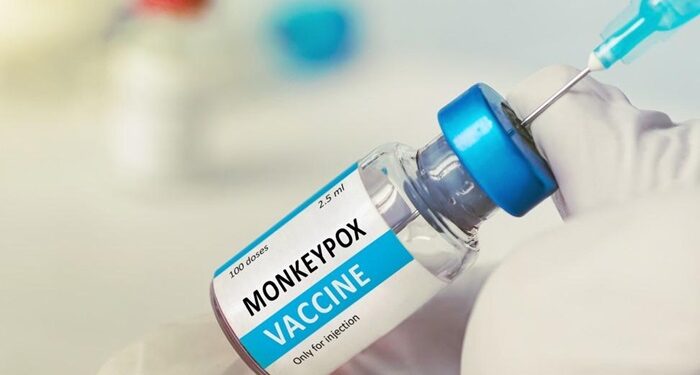The World Health Organization (WHO) is expected to decide on granting an emergency use listing (EUL) for an mpox vaccine within the next three weeks. WHO Director-General Dr. Tedros Adhanom Ghebreyesus made this announcement during the WHO Africa regional conference on Monday.
Dr. Tedros explained, “The WHO will decide whether to issue an emergency use listing (EUL) for the mpox vaccine within three weeks, following the submission of all required information by the vaccine manufacturer last Friday.”
The EUL process expedites evaluating and authorising vaccines, diagnostics, and treatments in response to public health emergencies. Dr. Tedros also noted the need for approximately $135 million to control the current mpox outbreaks in Africa, emphasizing that this effort would require a “complex, comprehensive, and coordinated international response.”
Criticism of WHO’s Delay
The WHO has been criticized for delays in evaluating pox vaccines already approved in the United States and Europe. This delay has left African countries dependent on donated vaccines. Germany has pledged to donate 100,000 doses of the Jynneos vaccine from its military stock to African countries facing severe outbreaks. Germany maintains a stockpile of about 117,000 doses of the Jynneos vaccine, procured in 2022.
Africa’s major vaccine procurers, Gavi and UNICEF, cannot purchase vaccines without an EUL or full WHO approval. The EUL procedure is intended to fast-track the approval of unlicensed medical products during public health emergencies. Two vaccines, Bavarian Nordic’s Jynneos (also known as MVA) and Emergent BioSolutions’s ACAM2000, are under consideration by independent health experts.
Recent Mpox Cases and Transmission
In the past month, over 220 cases of clade 1b have been confirmed in Burundi, Kenya, Rwanda, and Uganda—countries that had not previously reported mpox cases.
The WHO emphasizes the importance of raising public awareness about pox transmission. The virus primarily spreads through close contact, including skin-to-skin and respiratory interactions, as well as through contaminated objects like clothing or linen. To reduce the risk of infection, precautions are advised for individuals with multiple sexual partners.
“Mpox spreads mainly through close contact with an infected person, including household members,” the WHO stated. Individuals in close community settings or those involved in activities such as tattooing or healthcare are at higher risk.
Diagnostic and Treatment Protocols
The WHO underscores the importance of accurate diagnosis to differentiate pox from similar infections like chickenpox or herpes. Polymerase chain reaction (PCR) testing from rash samples is recommended as the most reliable diagnostic method. Additionally, HIV testing is advised for individuals with pox due to the higher risks associated with co-infections.
Treatment focuses on supportive care to manage symptoms and prevent complications. Although no proven antiviral treatment for mpox exists, some antivirals have received emergency use authorization and are being evaluated in clinical trials. “Continuing evaluation of therapeutics in clinical trials and optimizing supportive care is a priority,” WHO experts noted.
Post-Exposure Prophylaxis and Self-Care
The WHO recommends vaccination for high-risk groups, including healthcare workers, individuals with multiple sexual partners, and those in close contact with infected individuals. Post-exposure prophylaxis is advised, with vaccines to be administered within four days of exposure to reduce the likelihood of developing the disease.
For those contracting mpox, self-care measures include isolating in well-ventilated rooms, covering skin lesions, wearing masks around others, and avoiding scratching or popping blisters to prevent secondary infections. Infected individuals should maintain good hygiene by washing hands frequently and disinfecting shared spaces. The WHO also advises against sexual activities during periods of high transmission and recommends using condoms even after recovery.


